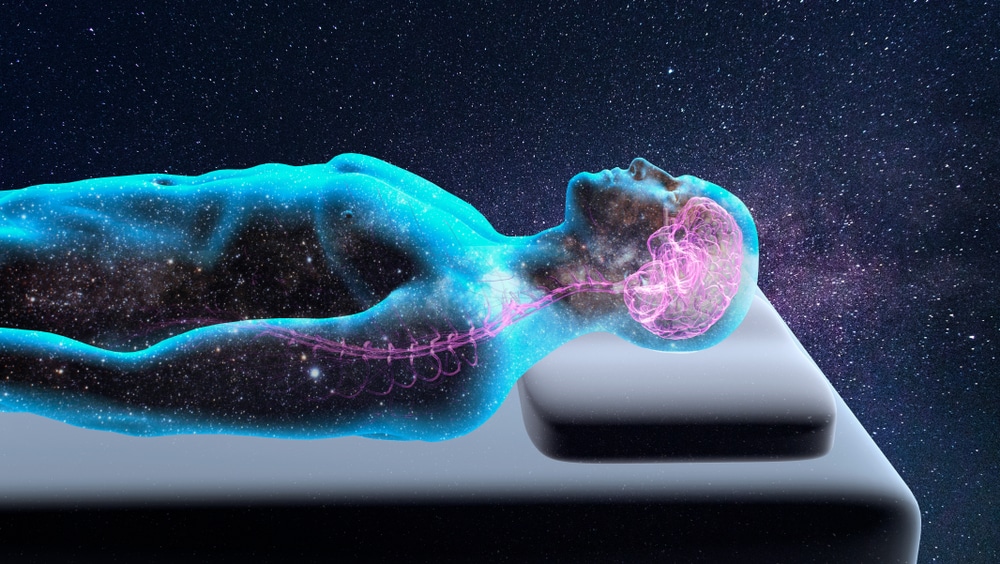Sleep is a complex physiological state that has been considered fundamental for a while. Lack of sleep is fairly detrimental to humans’ and animals’ overall health. In the past decade, an important link has been established between sleep and cognitive processing where sleep plays an important role in reinforcing different types of memory and contributes to inferential thinking. Although the mechanism by which memories are processed during sleep remains unknown, several experimental models have been proposed.
The question of sleep’s function has fascinated people for thousands of years and is now the subject of research across fields with a focus on how sleep contributes to cognitive processing and learning. Over the past decade, increased interest and experimentation in sleep’s role in learning and memory has sparked an explosion of research that establishes a solid link between sleep and memory. Although there are still many unknowns, recent research has led to a better understanding of its contribution to cognition and the possible mechanisms underlying this relationship.
Sleep and Memory Retention
Stages of Sleep
Over a 24-hour period, the human body constantly cycles between wakefulness and sleep states. The fluctuation of sleep states allows the body to recover and regenerate from previous wakefulness, which makes an individual feel well-rested.
About every 90 minutes during a normal night’s sleep, the brain alternates between two main stages of sleep: non-rapid eye movement sleep (NREM) and rapid eye movement sleep (REM), with approximately 75% of total sleep time spent on NREM.
In NREM, there are four stages of sleep that get progressively deeper. Stage 1 fills the gap between waking and sleep and is the process that lessens sleeper’s response to external stimuli. Stage 2 takes up about 50% of the sleep time. Stages 3 and 4 are often grouped together and referred to as delta, slow wave sleep (SWS) or deep sleep and make up about 15-20% of total sleep. Parasympathetic activation in this phase increases heart rate and blood pressure, energy use, temperature and respiratory rate -whereas SWS causes a peak in growth hormone that helps out in neural and peripheral cellular restoration.
About 90 minutes after falling asleep, during the normal sleep cycle, the brain switches to REM. REM sleep is defined as an “active, hallucinatory brain in a paralyzed body” and the brain works similarly to how it operates when its human is awake. Likely that is the phase where our dreams manifest.
Sleep Stages and Types of Memory
Research is yet to reveal how different types of memories are processed in our brain during different stages of sleep. One instance was that individuals who took language classes displayed an increase in the REM period. Scientists have hypothesized that this ties in with how memory is processed in REM sleep.
Other research is ongoing on sleep’s role in procedural memory, where one remembers how to go about something -like riding a bike or speaking a language-. Procedural memory is best consolidated in REM sleep.
Support the learning process
While sleep functions are widely discussed and have yet to be fully explained, researchers have studied the effects of insomnia overnight, reduced sleep for several hours each night, or disrupted sleep continuity. Studies in adults have shown that sleep deprivation has the most significant impact on cognitive function. Other cognitive function indicators such as attention, memory, and reasoning have also decreased with accumulated deficiencies following continuous sleep restriction in some sleep deprivation studies.
Most studies have focused on the effects of sleep deprivation on brain flexibility and memory. They have shown that sleep has a strong effect on both initial learning and subsequent long-term memory consolidation.
Another area that researchers examine is the impact of inadequate sleep on learning and memory. When we are sleep-deprived, our focus, attention, and alertness shift, making it difficult to receive information. Without adequate sleep and rest, we overwork our neurons to the extent of discoordination and end up losing our ability to access previously learned information and we lose the ability to make the right decisions because we cannot assess the situation properly, plan accordingly, and choose the next step. Moreover, when we are chronically tired or exhausted we are less likely to perform well as neurons do not fire optimally, muscles are restless and the body’s organ systems are out of sync. Interruptions in the focus of sleep deprivation can even cause accidents or injuries.
Sleep, learning, and memory are complex events that are not fully understood. However, animal and human studies show that the amount and quality of sleep have a profound effect on learning and memory. Studies show that sleep helps learning and memory in two different ways. First, a sleepless person is not able to focus optimally and therefore cannot learn efficiently. Second, sleep itself plays a role in the reinforcement of memory needed to learn new information. Learning and memory are generally defined by three functions, although the exact mechanisms are unknown.
So let’s run through some basic steps of knowledge acquisition aka learning. We can identify three basic steps as acquisition, exposure to novel information;
consolidation, the stage where the memory of the acquired information gets stable; and finally recall, going back and accessing that stored information by remembering it. Each of these steps is required for proper memory function. Acquisition and recall only occur during wakefulness, but research suggests that memory enhancement occurs during sleep through strengthening the neural connections that make up our memories. Although there is no consensus on how sleep makes this process possible, many researchers think that certain properties of brainwaves at different sleep stages are related to the formation of certain types of memory.



Recent Comments